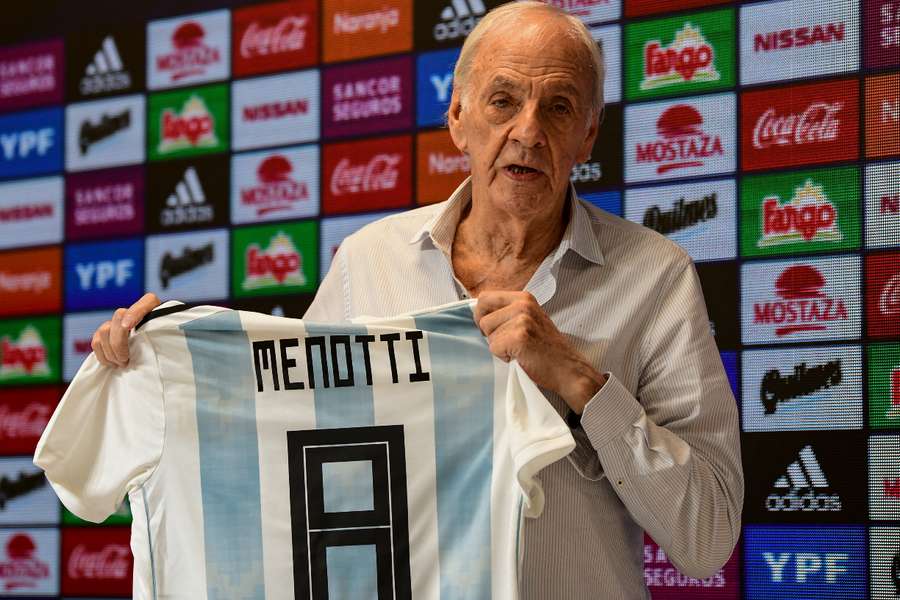EXCLUSIVE: World Cup-winning coach Menotti on how football has changed & Xavi's Barcelona

Flashscore: Where are you right now, are you in Rosario?
Menotti: "No, I live in the capital. I have a coaching school, I still live in Buenos Aires. I go to Rosario to go for walks, to eat with my friends."
Does football still play an important role in your life?
"Football is still a cultural fact in my life, it taught me to learn about everything. Football fame, if you use it well, leads you to meet great musicians, great journalists, and great poets.
"For me, football has been a place that has developed me culturally, which doesn't mean reading Borges. It means being close to reality."
What is it that football has given you that has been most useful in your life and that stays with you as a memory?
"You begin to understand what football means when you start to listen to the emotional relationship between the ball, the player and the people.
"That carries over to the history of the jerseys. Every shirt, even if it's not Barcelona or Madrid, has a history related to a cultural fact. It allows you the freedom to be yourself."
What memories do you have of your time in Spain with Barcelona and Atletico Madrid?
"The possibility to interact in a world that is difficult and the joy of being a representative when you are coach of Barcelona or Atletico Madrid."
How do you see the current situation of Xavi's Barca?
"It's been a moment of confusion and I think that having someone who knows the history of Barcelona as a player, it's possible that he can repair the relationship between the people, the players and the coach, which was half absent.
"All those who are at Barcelona right now are great players, even if the club doesn't have a figurehead like Messi, Maradona or Cruyff were at the time."

Do you think Jude Bellingham is ready to be among the greatest in history?
"He has the conditions, but you have to compete and live through the situations of commitment that come with wearing the shirt of that club. There are players who appeared to respond to the lack of the greats in the world of football from Di Stefano or Kubala onwards.
"The world of football is difficult, changed, confused... It's not easy. Before, the important thing was LaLiga, then the Cup. I always remember the two cup finals we won with Barcelona against Madrid. It's a moment of joy that you never forget, winning the Copa del Rey and the Copa de la Liga."
'Di Stefano was very brave'
What memories do you have of those duels against Madrid?
"On the other side was Di Stefano. Alfredo was fierce, he always complained, he always had excuses, he was fierce.
"That world of football, I hope it will continue. It was always lived from a respect for the game, for that cultural fact of representation that the Barcelona shirt has. It is to understand that you are wearing a shirt that represents the joy, the commitment of a society - they are clubs with a lot of power of representation. It's not just about the game and Sunday."
How do you think it has all changed, not only the life of the footballer but the sport itself?
"I think society has changed, there is a world of urgency, the mere fact of representing a club like Barcelona or Madrid is unforgettable and that has been lost. Before, one of those shirts was a recognition card.
"If you had played for Barcelona, you went to a restaurant, there was a former player, they recognised him, respected him and decorated him as if he was still playing. I've had the time to see the affection with which the fans who love Barca recognise someone."
Sometimes people in Barcelona complain that there is a lack of grit, a lack of intensity from some players.
"We have to start to recognise that there is a profound deculturation in society. In football, it happened a long time ago. When I was coach of Barcelona I walked into a place, I was never asked for an autograph but I was greeted as if I had been born in Barcelona and it's not as if I had won ten championships.
"You have to be careful because sometimes the business world devours that relationship. You have to be aware of what you are representing, not just that you are doing well in the result. I am very happy with the relationship I got to have with the players."
